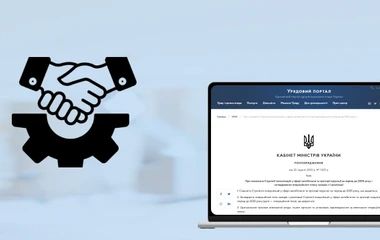For the quality development of the whistleblowing institution in Ukraine, it is necessary to have a solid foundation, which should be based on the regulation of legislation to eliminate existing gaps in this area, change the public discourse on the culture of whistleblowing and establish effective cooperation between all anti-corruption and law enforcement agencies.
This was stated by Serhii Hupiak, Deputy Head of the National Agency on Corruption Prevention (NACP), during the event “Establishment and Development of the Whistleblowing Institution in Criminal Proceedings: Successes and Challenges”.
"Discrepancies in the definition of ‘whistleblower’ in the Law of Ukraine ‘On Prevention of Corruption’ and the Criminal Procedure Code (CPC) create a number of problematic aspects at all stages of work with whistleblowers: from acquiring this status to protection and receiving payments. Therefore, one of the first steps in solving the problematic issues of the whistleblowing institution should be to unify contradictory points in the legislation and eliminate other legislative gaps. It is also important to have high-quality communication that will form a clear understanding of who a whistleblower is, what rights and guarantees he or she has, and the effective, synchronized work of the entire anti-corruption infrastructure and law enforcement agencies,” the NACP Deputy Head emphasized.

The practical part of the event, which was held in the format of discussion panels and interactive group work, brought together anti-corruption and law enforcement agencies, the legal community, and representatives of the public sector to address controversial issues regarding the status of a whistleblower in criminal proceedings. The issues to be discussed included harmonizing the definition of a whistleblower in the Criminal Procedure Code of Ukraine and the Law of Ukraine “On Prevention of Corruption” (eliminating contradictions in the requirements for sources of information provided by a whistleblower, reporting channels and opportunities for a legal entity to obtain the status of a whistleblower), ensuring confidentiality and protecting the rights of whistleblowers in criminal proceedings.
The discussion will result in practical recommendations.
The event was held with the support of of the project “Promoting Integrity in the Public Sector (Pro-Integrity)”. It was attended by representatives of NACP, the Prosecutor General's Office, the Specialized Anti-Corruption Prosecutor's Office, the National Anti-Corruption Bureau, the High Anti-Corruption Court, the National Police, academics, civil society and international organizations.
“Promoting Integrity in the Public Sector (Pro-Integrity)” is an anti-corruption project funded jointly by USAID and UK International Development.













